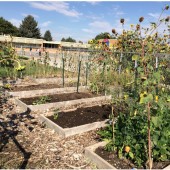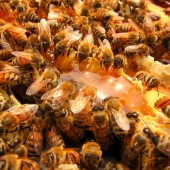
Abstract: Nature journaling creates an opportunity for students to observe, wonder about and reflect on the natural world and their place in it. We explored student experiences of nature journaling in third and sixth grade elementary classrooms in a Title I elementary school located in the desert southwest. Data sources included student interviews and their journals. Through a thematic analysis, we identified several benefits of nature journaling. We found that students appreciated freedom of movement, spaciousness and awakening of their senses when learning outdoors. They described positive emotions when reflecting on their journaling experiences and conveyed a strong sense of place about their gardens. Their journal entries demonstrated evidence that some students were developing systems thinking (understandings about organisms and abiotic factors of ecosystems, relationships, and change over time). This study extends prior literature on nature journaling in K-12 settings by interviewing students from 4 classes about how they feel about nature journaling in addition to analyzing their journals.
Continue Reading
This essay describes a project in which a 4th grade class joined forces with a university class to study and produce as theatre Paul Fleischman’s Seedfolks, an inspiring story of a diverse group of community residents who transform a vacant urban lot into a wonderful community garden. In addition to the arts component, the two teachers unexpectedly found an opportunity to encourage sustainability of education when their students embarked on a pen pal correspondence.
Continue Reading
The Ashland Apiary Project is a multi-pronged, multi-aged learning design that uses beekeeping as a thematic avenue for hands-on experiential learning and the cultivation of land stewardship. The project is a student-led, collaborative effort by Southern Oregon University to establish an on-campus apiary that serves as a model of place-based and community-based education for a wide audience of students in an elementary, secondary, and collegiate setting. Through the Ashland Apiary Project, the pedagogic approach of “apiary-based learning” is considered in the field of sustainability education.
Continue Reading